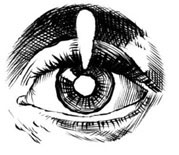
“Knowing Catholic”
LAYING THE FOUNDATION
Archbishop Daniel E. Pilarczyk of Cincinnati recently wrote a little book called Thinking Catholic, in which he quickly identifies the most serious problem facing the Church today: Catholics do not know their faith.
“Many of our people,” he writes, “have not been properly educated. They don’t know what the Church teaches.” He continues: “According to survey statistics, the incidence of birth control and abortion and divorce among Catholics isn’t much less than among the American population at large.” One obvious reason for this is that it is becoming increasingly difficult for Catholics to avoid society’s Godless secular materialism. “We are bombarded with invitations to buy, enjoy, use up, throw away and then buy again…. Our whole country seems to be engaged in an activity that nobody can really justify.” Indeed, without the special help of God we are like Sisyphus, pushing our rock up the hill, only to have it fall back down — again and again.
While one can agree that some part of the blame lies outside the realm of Catholicism, the loss of “Catholic thought” in our Church comes primarily from problems within Catholicism. Today’s American Catholic suffers from an urge to conform to the spirit of the modern world. This ultimately leads to a loss of faith, for we are not living in a Catholic world, but a secular one that is hostile — sometimes subtly, sometimes overtly — to Catholic principles and beliefs.
Archbishop Pilarczyk poses a cardinal question: Is this loss of faith “the fault of Catholic education, or is there something more?” I sense that the Archbishop, in this instance, is referring to Catholic education in the narrow sense of sitting at a desk in parochial school classrooms for 12 years. In a more general sense, however, Catholic education encompasses the total formation of the Catholic child, experienced within the Catholic family, and then in parish life, in the classroom, and through the Catholic media.
You May Also Enjoy
A problem arises when someone unfamiliar with Catholic history composes a study of eminent Catholics who lived under persecution.
Rob Henderson defines "luxury beliefs” as “ideas and opinions that confer status on the upper class at very little cost, while often inflicting costs on the lower classes.”
John Paul II's 'Sollicitudo Rei Socialis' equates Western capitalism with Eastern Communism, and condemns both even-handedly.

